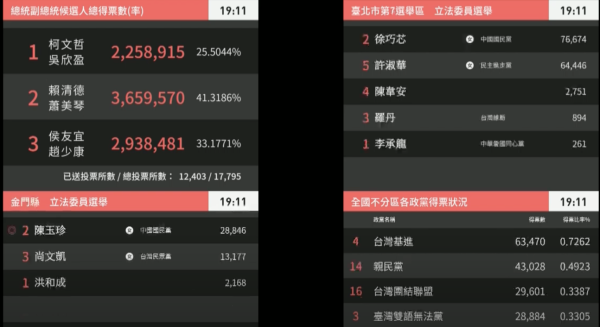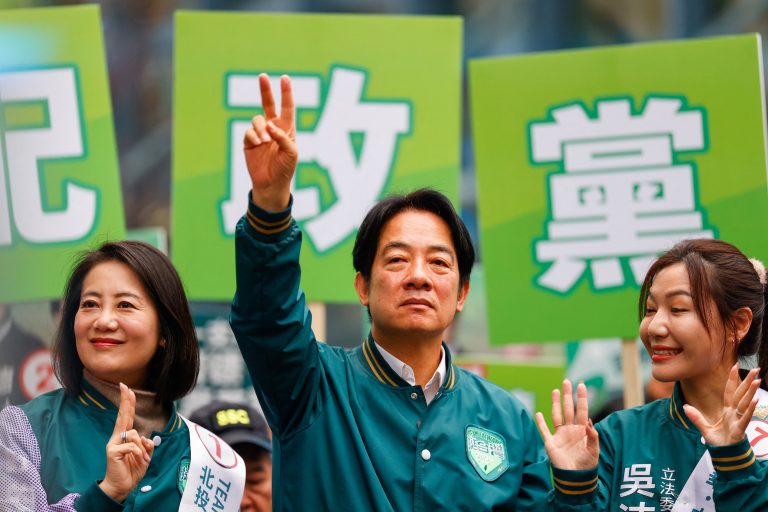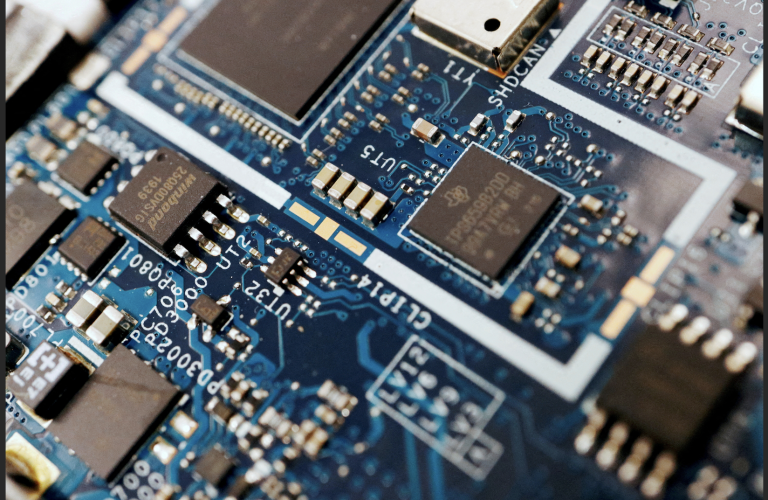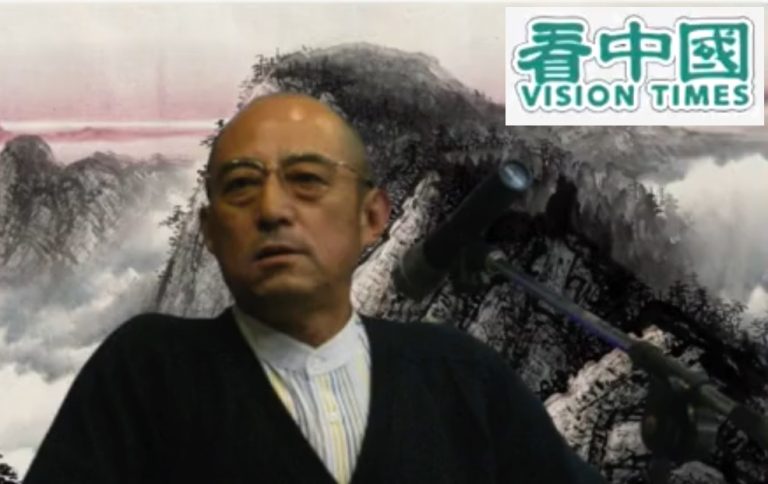The ruling Democratic Progressive Party (DPP) looks to be getting a third term in control of Taiwan’s presidency as its candidate, Wiliam Lai Ching-te, is leading in the vote count that began after polls closed at 4 p.m. local time on Saturday, Jan. 13.
According to Taiwan’s election laws, there is a blackout on opinion polls and surveys for 10 days up to the day of the vote. Voters must cast their ballots on the day of the election at polling centers in their places of official residence; there is no mail-in voting and all ballots are counted by hand.
According to the Central Election Commission’s livestream of the vote count, of the nearly 9 million ballots processed as of 7:11 p.m, over 3.6 million people, or 41 percent, had voted for Lai, while his main rival, Hou Yu-ih of the Chinese Nationalist Party (Kuomintang), lagged significantly behind at around 33 percent with some 3 million votes.

Ko Wen-je, the maverick leader of the new Taiwan People’s Party (TPP), saw his proportion hover around 25 percent of the incomplete count.
Taiwan is formally known as the Republic of China (ROC), the government that prior to 1949 governed all of China before it was defeated on the Asian mainland in a brutal civil war with the Chinese Communist Party (CCP).
Success
You are now signed up for our newsletter
Success
Check your email to complete sign up
The DPP favors a separate Taiwanese national identity apart from China, while the Kuomintang favors dialogue and business with the mainland, though it denies being pro-Beijing.
Lai is currently Taiwan’s vice president under the outgoing administration of Tsai Ing-wen, which leaves office in May. Hou is the popular mayor of New Taipei City, which surrounds Taipei, the Taiwan capital.
Both Lai and Hou emphasized the need to build up the ROC’s military defenses and international security partnerships in the face of Beijing’s aggression, though they disagreed on what kind of diplomatic stance to take vis-a-vis the mainland Chinese regime.
The CCP recognizes neither the ROC nor an independent Taiwan, claiming the island as part of Communist China’s sovereign territory.
Some 19 million of Taiwan’s 23 million people were eligible to vote in this year’s elections, which also saw many close races for dozens of seats in the ROC Legislative Yuan, the national parliament.
While the final opinion polls on Jan. 3 had forecast a close contest between Lai and Hou, the actual results show a nearly 10-point lead by the DPP’s candidate.
The last days leading up to the election saw spirited campaign events by the competing parties, with the DPP and TPP holding mass demonstrations near the Presidential Office in Taipei on Jan. 11 and Jan. 12, respectively. The Kuomintang had previously held such a rally on Dec. 23, 2023.
The final voter turnout and winners of the election are expected to become clear on Sunday, Jan. 14.













